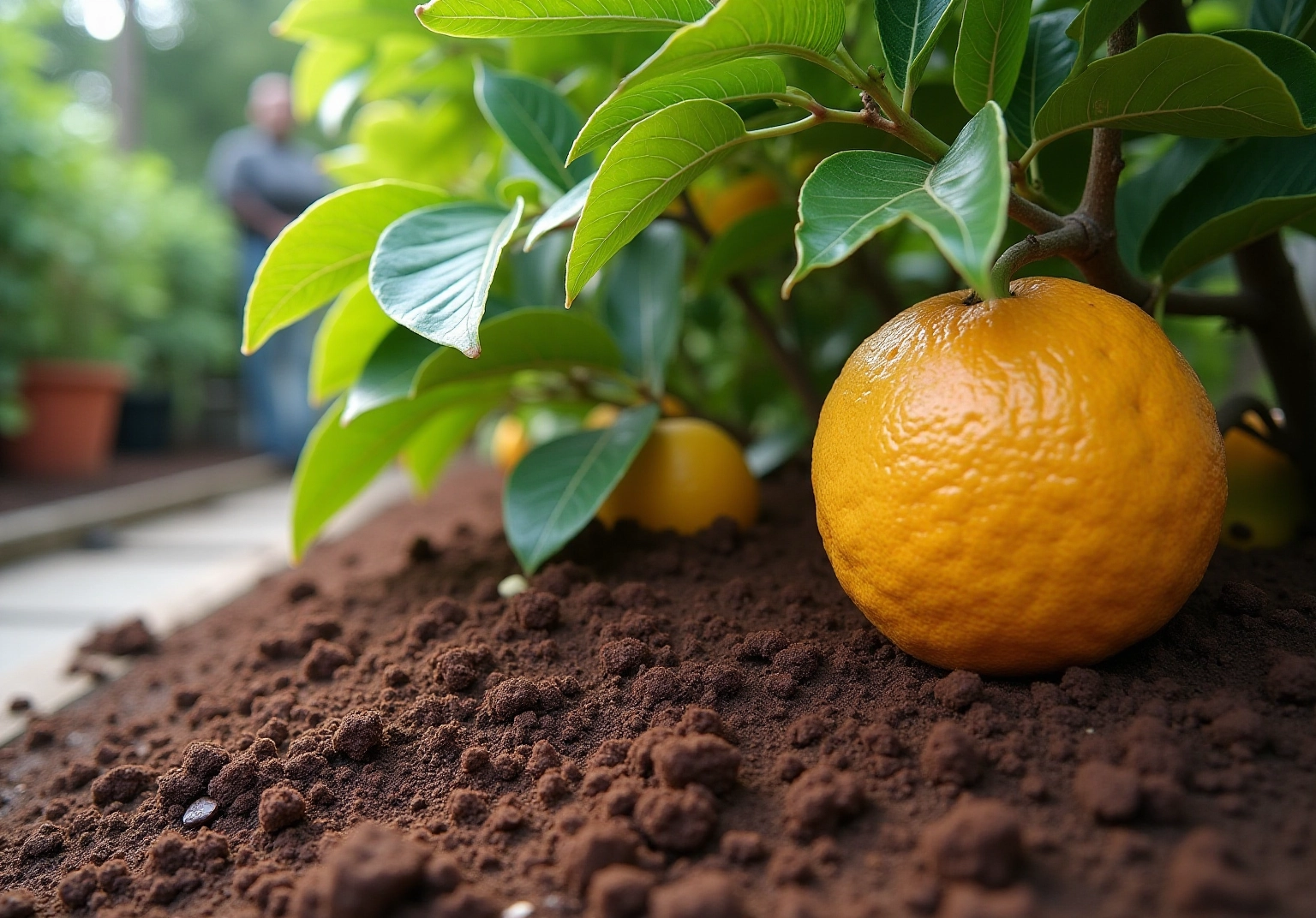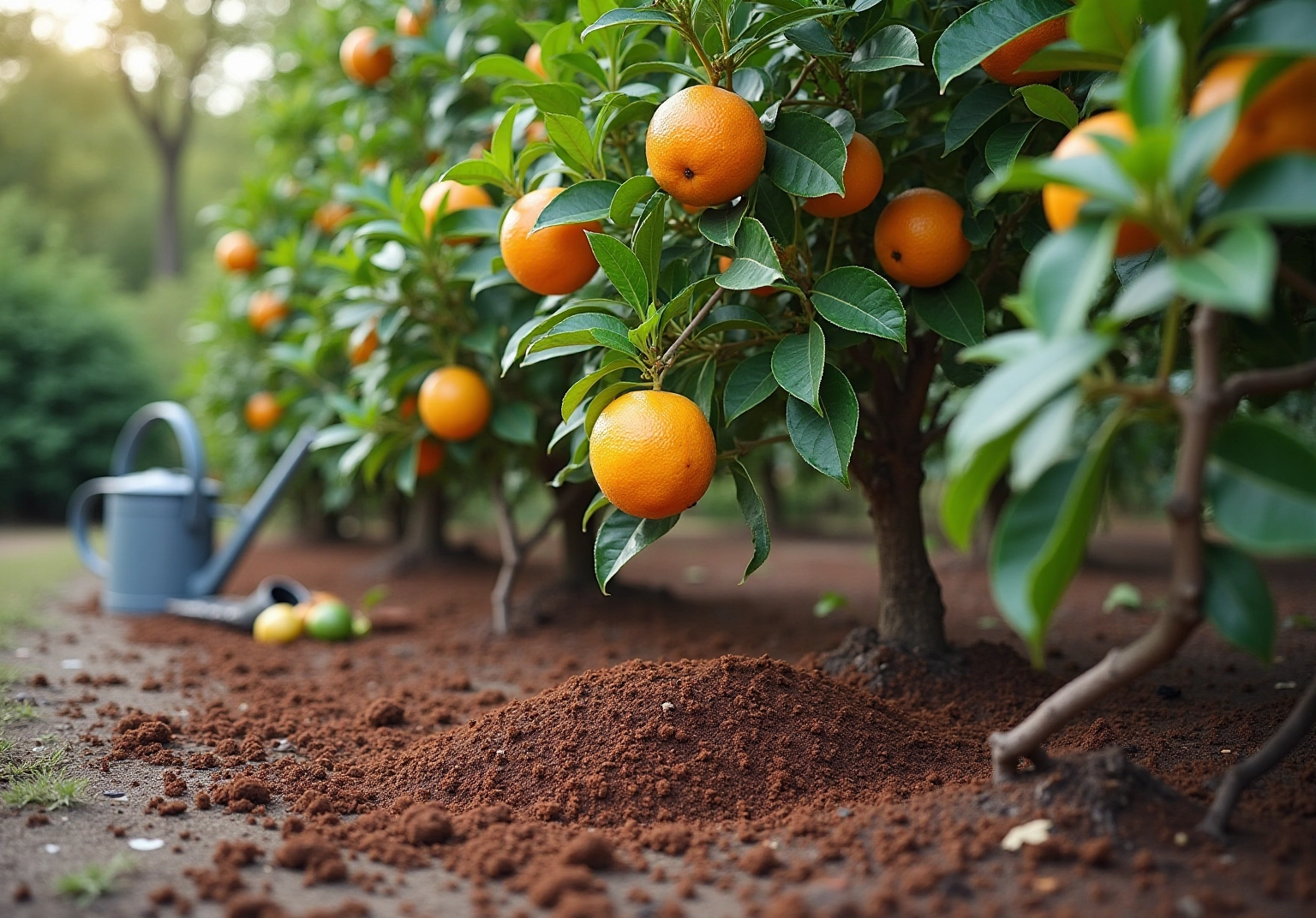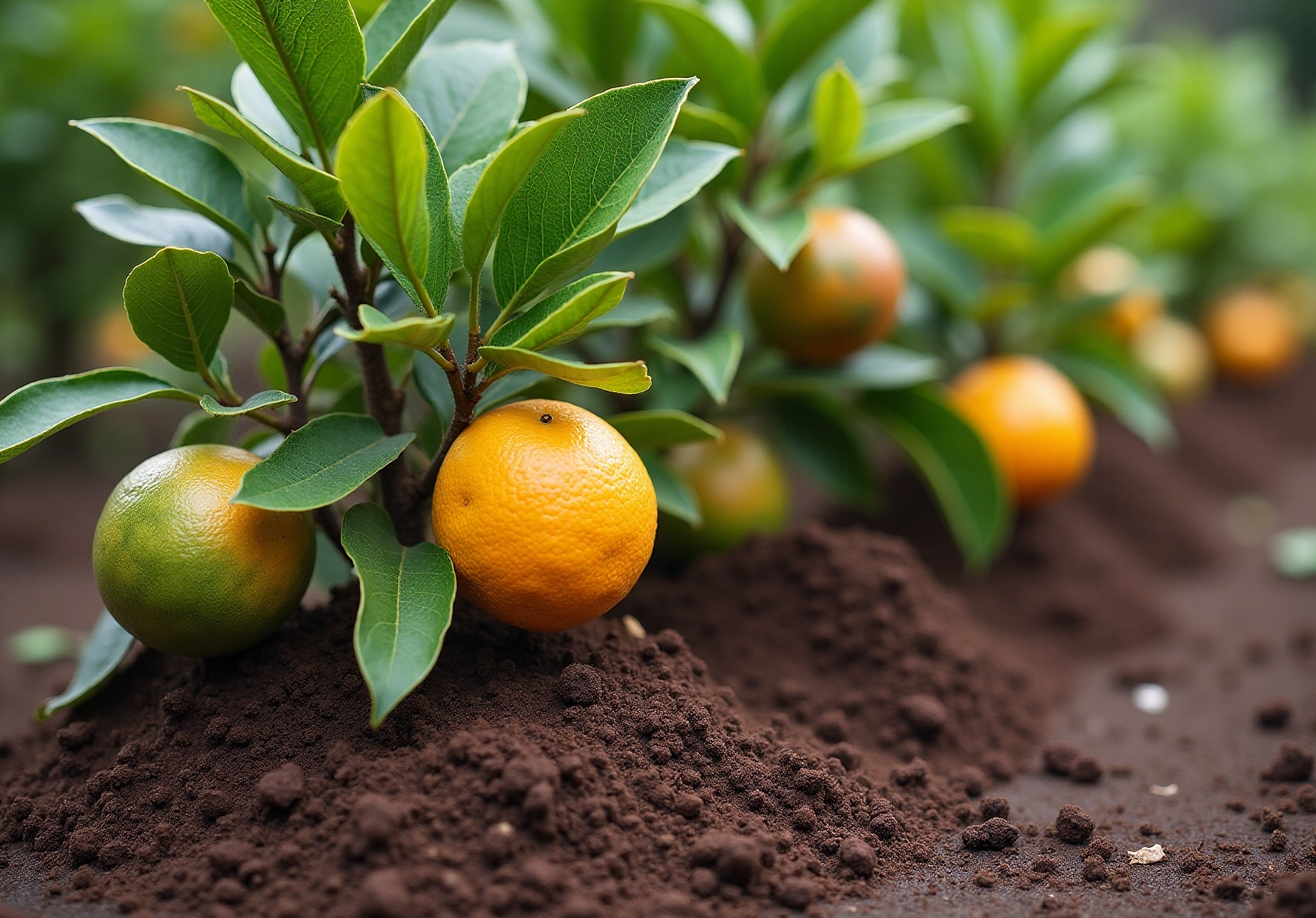Coffee grounds, often viewed as mere waste, actually offer a wealth of benefits for nurturing citrus trees. These remnants are rich in essential nutrients and can significantly improve soil structure, transforming standard gardening practices into a thriving ecosystem. However, understanding how to effectively harness their potential is crucial.
What occurs when the balance is disrupted?
Can an excess of these beneficial grounds lead to unforeseen challenges?
Exploring the use of coffee grounds for citrus trees not only uncovers their advantages but also delves into the complexities of their application, allowing every gardener to cultivate healthier, more vibrant plants.
Understand the Benefits of Coffee Grounds for Citrus Trees
Coffee residues serve as a significant source of essential nutrients such as nitrogen, phosphorus, magnesium, and copper, which are crucial for the healthy development of citrus plants. When incorporated into the soil, these residues function as a slow-release fertilizer, ensuring a consistent supply of vital nutrients. Additionally, the inclusion of coffee bean remnants can lower soil pH, creating a more acidic environment that citrus plants thrive in, ideally between 6.0 and 7.0. This acidity facilitates better nutrient absorption, particularly of iron, which is essential in preventing chlorosis—a condition marked by yellowing leaves.
Furthermore, the organic matter in coffee residues improves soil structure, promoting enhanced water retention and drainage. The aromatic properties of coffee can also deter pests like slugs and snails, providing an extra layer of protection for your citrus trees. As Julia Tink notes, 'Coffee residues are a nutrient-rich treasure trove, containing vital elements such as nitrogen, potassium, phosphorus, and trace minerals.'
By acknowledging these benefits, gardeners can effectively understand how to use coffee grounds for citrus trees to enhance the health and yield of their plants.

Apply Coffee Grounds: Step-by-Step Instructions
-
Collect Used Brew Residue: Gather used brew residue from your coffee maker or a nearby café, ensuring they are free from additives such as sugar or cream.
-
Dry the Mixture: Spread the caffeine remnants on a baking sheet and allow them to dry for several hours to prevent mold development when applied to the earth.
-
Test Soil pH: Before application, test the soil pH around your citrus trees. A pH range of 6.0 to 7.0 is optimal, and this will direct the quantity of grounds to utilize.
-
Combine with Other Organic Material: Mix the dried residues from coffee with compost or well-decomposed leaves. This mixture enhances nutrient availability, improves ground texture, ventilation, and aids in reducing fungal disease, promoting healthier growth.
-
Apply to Soil: Scatter a thin layer (about 1/4 inch) of the mixture made from used grounds around the base of your citrus plants, avoiding direct contact with the trunk. This enables nutrients to penetrate the ground without harming the tree.
-
Water Thoroughly: After applying the coffee grounds, water the area well. This activates the nutrients and encourages microbial activity in the soil, essential for plant health.
-
Monitor Plant Health: Observe your citrus trees over the following weeks for signs of improved growth and health, such as vibrant green leaves and increased fruit production. Regular monitoring will help you adjust your care routine as needed.
Warning: Be mindful that used beans can be harmful to dogs if consumed in significant amounts. Furthermore, refrain from applying fresh bean residues directly on plants, as they can hinder growth.
 Troubleshoot Common Issues When Using Coffee Grounds
Troubleshoot Common Issues When Using Coffee Grounds
-
Excess Nitrogen: Yellowing leaves or stunted growth may indicate an overuse of coffee remnants. Coffee residue contains up to 8.09 mg of caffeine per gram, potentially leading to nitrogen overload. To balance nitrogen levels, reduce the amount used and consider incorporating carbon-rich materials, such as dried leaves. Understanding how to use coffee grounds for citrus trees is crucial for maintaining optimal nitrogen levels essential for their health.
-
Excessive coffee residues can cause soil compaction, which restricts root development. Research has shown that overuse can create a compacted layer in the soil, limiting aeration. To remedy this, mix the substrate with other organic materials to improve aeration and promote healthier root systems.
-
Mold Growth: The presence of mold on coffee residue may result from excess moisture. Ensure that the grounds are dry before application, and avoid overwatering the area to prevent mold development. To prevent excess moisture that creates a favorable environment for mold, it's beneficial to understand how to use coffee grounds for citrus trees.
-
Acidity Levels: If your citrus plants show signs of distress, check the soil pH. To understand how to use coffee grounds for citrus trees, it's important to note that citrus plants thrive in a pH range of 6.0 to 7.0. If the soil is too acidic, consider adding lime to balance the pH levels, fostering a healthier environment for your trees. Regular monitoring is essential, as the pH of decomposing bean residue is not stable.
-
Pest Attraction: While used coffee grounds can repel certain pests, they may attract others. Studies indicate that coffee grounds do not effectively deter slugs and may even draw in specific pests. Keep an eye out for new pest activity and adjust your pest management strategies accordingly, and consider how to use coffee grounds for citrus trees to enhance their health.

Conclusion
Incorporating coffee grounds into the care routine for citrus trees significantly enhances their health and productivity. By utilizing these nutrient-rich residues, gardeners provide essential elements such as nitrogen, phosphorus, and magnesium, vital for the growth and vitality of citrus plants. The slow-release nature of coffee grounds, combined with their ability to lower soil pH, creates an ideal environment for nutrient absorption, ultimately leading to vibrant foliage and increased fruit yield.
Key practices for effectively using coffee grounds include:
- Collection
- Drying
- Application processes
Emphasizing the importance of soil pH testing and the careful mixing of coffee grounds with other organic materials ensures that the benefits are maximized while avoiding common pitfalls such as nitrogen overload or mold growth. Regular monitoring of plant health is crucial, allowing adjustments based on the trees' responses to the amendments.
Embracing the practice of using coffee grounds fosters healthier citrus trees and promotes sustainable gardening practices by recycling waste. As gardeners implement these strategies, they contribute to a more eco-friendly approach to cultivation while enjoying the fruits of their labor. By understanding how to use coffee grounds for citrus trees effectively, the journey towards a flourishing garden becomes both rewarding and environmentally conscious.
Start your sustainable gardening journey with Everglades Farm
Explore
- 👉🏻 Fertilizer for fruit trees
- 👉🏻 Fruit trees collection
- 👉🏻 Dwarf fruit trees
- 👉🏻 About Everglades Farm
Frequently Asked Questions
What nutrients do coffee grounds provide for citrus trees?
Coffee grounds provide essential nutrients such as nitrogen, phosphorus, magnesium, and copper, which are crucial for the healthy development of citrus plants.
How do coffee grounds affect soil pH for citrus trees?
Coffee grounds can lower soil pH, creating a more acidic environment that citrus plants thrive in, ideally between 6.0 and 7.0.
Why is soil acidity important for citrus trees?
Soil acidity facilitates better nutrient absorption, particularly of iron, which is essential in preventing chlorosis, a condition marked by yellowing leaves.
How do coffee grounds improve soil structure?
The organic matter in coffee grounds improves soil structure, promoting enhanced water retention and drainage.
Can coffee grounds help deter pests from citrus trees?
Yes, the aromatic properties of coffee can deter pests like slugs and snails, providing an extra layer of protection for citrus trees.
What is the overall benefit of using coffee grounds for citrus trees?
Coffee grounds serve as a slow-release fertilizer, improve soil structure, help maintain proper soil acidity, and deter pests, all contributing to the health and yield of citrus plants.




0 comments